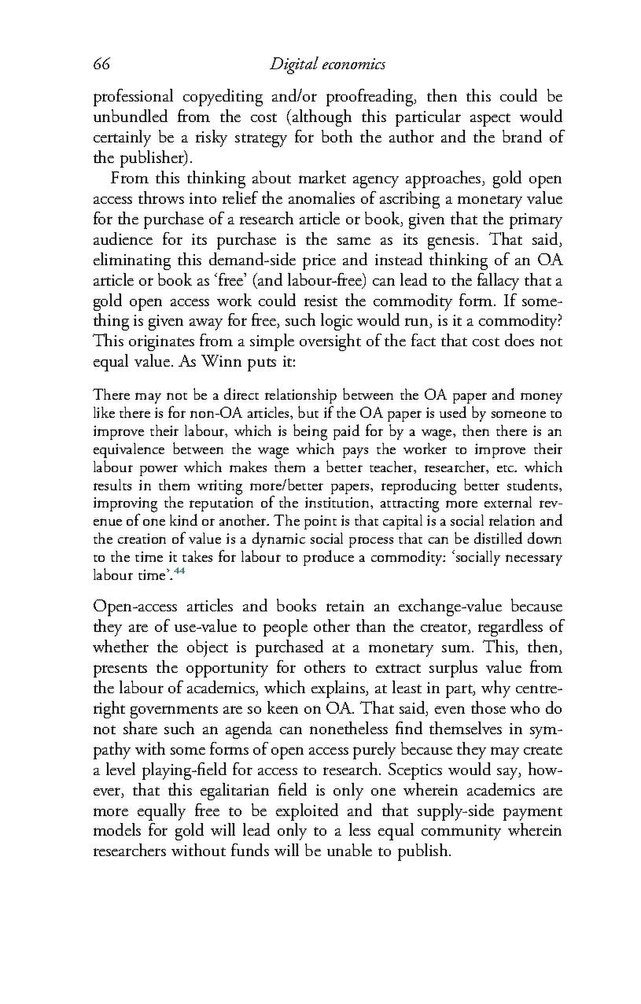professional copyediting and/or proofreading, then this could be unbundled from the cost (although this particular aspect would certainly be a risky strategy for both the author and the brand of the publisher).
From this thinking about market agency approaches, gold open access throws into relief the anomalies of ascribing a monetary value for the purchase of a research article or book, given that the primary audience for its purchase is the same as its genesis. That said, eliminating this demand-side price and instead thinking of an OA article or book as ‘free’ (and labour-free) can lead to the fallacy that a gold open access work could resist the commodity form. If something is given away for free, such logic would run, is it a commodity? This originates from a simple oversight of the fact that cost does not equal value. As Winn puts it:
There may not be a direct relationship between the OA paper and money like there is for non-OA articles, but if the OA paper is used by someone to improve their labour, which is being paid for by a wage, then there is an equivalence between the wage which pays the worker to improve their labour power which makes them a better teacher, researcher, etc. which results in them writing more/better papers, reproducing better students, improving the reputation of the institution, attracting more external revenue of one kind or another. The point is that capital is a social relation and the creation of value is a dynamic social process that can be distilled down to the time it takes for labour to produce a commodity: ‘socially necessary labour time’.44
Open-access articles and books retain an exchange-value because they are of use-value to people other than the creator, regardless of whether the object is purchased at a monetary sum. This, then, presents the opportunity for others to extract surplus value from the labour of academics, which explains, at least in part, why centre-right governments are so keen on OA. That said, even those who do not share such an agenda can nonetheless find themselves in sympathy with some forms of open access purely because they may create a level playing-field for access to research. Sceptics would say, however, that this egalitarian field is only one wherein academics are more equally free to be exploited and that supply-side payment models for gold will lead only to a less equal community wherein researchers without funds will be unable to publish.
